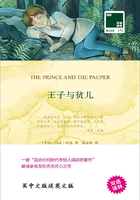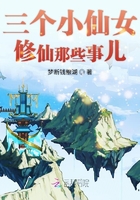When Jim Crow made friends with us, we used to allow a few of the friendly natives to stay about, as they always informed us of the movements of the mob. In this way we obtained an idea of the best time to journey out for food supplies.
Hearing that the coast was clear to get away, we decided to go for some goods that had been sent as far as Charlotte Plains, on the Loddon River, a journey of about 150 miles- not an easy under taking. Leaving the rest of the party to protect the homestead, my father and I started off. I was only nine years old at the time, but had been brought up to fear nothing.
With six bullocks and a light dray we made good progress, as it was summer-time. Nothing of any importance happened till we had returned, with the supplies on board, as far as the Four Post Station(Glenorchy) about thirty miles from home. Before our arrival, the blacks had stolen about two hundred sheep, taking them in the direction we were to travel the next day.
As there was such a big tribe, the shepherds were afraidto follow, and allowed them to take the sheep away without a fight. Word had been sent to the homestead asking for a party to follow them, but no one arrived while we were there. We decided to push on and risk what might happen.
We had travelled fourteen or fifteen miles when we saw the smoke of the blacks" camp about a quarter of a mile off. We were now in a forest of box timber, and the reader can imagine the wildness of the scene-no settlements, no help from anywhere should we need it, nothing but a wild bush track, with the blue sky above, and the screeching of parrots to break the stillness as they flew from tree to tree, and hundreds of native fires not far off to warn us of the danger ahead. We did not stop, nor did we even speak, thinking that, if we went on very quietly, the blacks might not notice us, as they had such a feast of mutton to take up their attention.
Alas! our hopes were vain; for, to our dismay, we heard bloodthirsty yells from hundreds of voices across the river, and knew that we had been seen. We waved to the blacks, trying to make them understand that we did not want them; and you may imagine we tried to make our meaning very clear, seeing that our lives were hanging in the balance.
They consulted together, and you will understand that those seconds were not happy ones for the man and boy who stood awaiting their decision. After long years, I cansee again the whole scene before me, and feel the dread which crept around my heart as I watched those natives swim across the river with their spears and waddies in their hands.
We decided to go on quietly, pretending not to notice their movements, until they had formed a circle round us and we were hemmed in on all sides. I implored my father not to shoot, as I knew only too well that, had he done so, they would have speared us to death.
Having made up his mind on what seemed to be the best course to follow, he laid the gun on the top of the dray; and the blacks, who were in the act of throwing their spears, at once put them down and walked up to us. Here we were, surrounded by a circle of about two hundred savage faces, and unable to move for fear our action might be misunderstood. The bullocks in the dray were so frightened that the chains and yokes rattled on them.
One blackfellow pulled off a bag of sugar, and the mob began to eat it. Another, with wild, glaring eyes and fiendish expression, walked up to my father and seized him by a sleeve of his coat, at the same time digging his great fingers almost into the flesh, and raising his waddy as though to strike him on the head.
I was terrified; but as if by magic the king, Jim Crow, whom I have mentioned before, called out, "Melligig whiteman; melligig white man," which meant that the white man had been very good. At his words, the blackfellow let go his hold, and we both shook hands with Jim Crow. We made him understand that, if they only let us alone, we would kill a bullock at the station for them.
We had a pound or two of tobacco with us, which the shepherds of the Four Post Station had given us to take to a friend of theirs at North Brighton. This we gave to Jim Crow, who put the remainder of the sugar on the dray, and told us to go on. We showed as friendly and as bold a face as possible, and did as we were told.
The tribe sat down and began to eat the sugar, while we departed as quietly as possible; but as soon as we were out of sight we raced for our lives. Once out on the plain, we could see the blacks doing their best to catch up to us. We were about fourteen miles from the home station, and never shall I forget that race for life.
When the bullocks showed signs of slackening their speed, we urged the poor brutes on as best we could. A run for life along a good metalled road of to-day would be no laughing matter, but what it was then, through the wild bush, only one who has experienced it can know.
We raced for seven miles, and crossed the Yarriambiac Creek, now called Longerenong, and had a straight run to the station. Our speed was too much for the tribe, althougha dozen or so of the younger ones held on till we came in sight of home.
W e ar r iv ed at Nor th Br ighton without fur ther adventures, and found all well, no blacks having been seen at the station during our absence. Every one was delighted and thankful to see us back, and to get the food supplies, especially the tea and sugar, which were thought great luxuries.
Author.-The passage is taken from the diary of Mr. Samuel Carter, whose father was an early settler in the Wimmera, which was then (in the early forties) a part of the Port Phillip district of New South Wales. The events described took place near Longerenong (see atlas).
General Notes.-Jim Crow was the king of the tribe. "North Brighton"was the name of Mr. Carter"s selection near Longerenong. Were the blacks fairly treated by early settlers in general? Recall instances of their kindness to lost explorers.
WOOD
I love the smell of drying wood, Its fragrance is so clean and good. I think of little kitchens warm,Their windows battened from the storm; And safe wee homes against the snow, With cheerful firesides aglow.
I think of drift-wood clean and high, Piled up in little rows to dry;The smell of cedar on the air,
By shining beaches warm and bare; Strange drift-wood of a hundred lands, Picked up by little children"s hands.
I think of tables gladly spread
With flaky loaves of home-made bread,
Of golden honey in a pot,
And steaming suppers rich and hot, With lamplight yellow as the sun, And happiness when day is done.
I think of sprouted wheat and soil,
Of wide brown fields where horses toil, Of pastures green with quiet trees,And little children on their knees.
Life"s common things are sweet and good,
Like drifting smoke and drying wood.
- Edna Jaques
Author.-Edna Jaques. No information about the author is available. Can you learn anything about her from her poem?
General Notes.-Make a brief list of all the things thought of by thewriter. Notice the picture in each stanza. Draw the one you like best. Can you see how one picture leads on to the next? How is each connected with wood?
Choose a smell you like (the smell of gum-trees, of soup-in-the-pot, and so on), and then make a list of the pictures that come into your mind during the next two or three minutes.
AT THE FLOODED CREEk
It happened that they crossed a creek one afternoon. Stan laughed at the word "creek." It was just a wider depression of soft sand, twisting across the almost level plain, fringed in places with gnarled old gum-trees. Dick explained that in Central Australia the word "creek" is applied to any bed where water would flow if it ever rained hard enough.
"It"s just the natural drainage-channel, that"s all," he said. "You"d think it could rain steadily for a year on this sandy soil without any of it running off, wouldn"t you?"Stan agreed. The country was so hungry-looking that he wondered how cattle could possibly live there.
"You"d be amazed at its fertility," went on Dick. "Say we had a good solid thunder-storm here to-day. In a week you"d see a carpet of green all over the plain. The seeds are there all right; they"re just waiting for a chance to germinate.
"And the curious thing about these creeks, which amuse you so much, is that they sometimes flow a banker through country where no rain has fallen. They are often of enormous length, and good rains in, say, Queensland mightcause such a creek as we crossed this afternoon to flow full for a week. Then it might easily be dry for a whole year. A couple of days before you joined us, a blackfellow from the north told me that rain was expected over the Gulf of Carpentaria country, so you might have the bad luck to see something of the kind before we reach Narrawing.""Bad luck, did you say?" asked Stan in surprise.
"Yes. Bad luck. It would be the best of good luck to have a few inches of quiet rain on this country, but a flooded creek is no good to us, and it"s a terrible job getting cattle over."Dick proved to be correct. That night, just after the cattle-watches were arranged and the men had settled down for the night, a strange blackfellow stole up to the fire and stood on the other side, respectfully waiting till the white men should tell him he could deliver his message. Dick evidently knew the man.
"You, Larry?" he asked. " You come longa Dundoonda, eh?""Yah. Me come longa Dundoonda aw-right." The man grinned like a child, pleased at being recognized by a white man.
"What name?" (What do you want?) asked Dick, handing the black a stick of tobacco.
"Big mob water come down longa Dry Creek," said the native.
"It"s just what I feared," Dick explained to Stan. "Dry Creek is only a few miles ahead, and it lies across our track to Narrawing. We"re late as it is, or I"d wait till the flood went by. You good fella," he turned to the native. " Me give you plenty tucker." He carried out his promise immediately, and the blackfellow backed away into the darkness, well pleased with his reward.
Next morning, instead of moving the cattle off camp in the first grey light of dawn, Dick and Stan rode ahead to investigate Dry Creek, leaving orders to shepherd the cattle quietly in whatever feed could be found.
Before long they saw a line of dark green meandering across the plain. Stan was used to these widely-separated belts of trees by now, and from the distance there was nothing to indicate that this was anything but a depression of dry sand. The plains on each side of it certainly looked as if they had not received a drop of rain for months. As they topped a little sand-hill, they saw what to Stan was a most amazing sight; a silver ribbon stretched across the sun-drenched plain. To the north and south of it was lost in the mirage of the horizon.
It was water!
Having gazed for sometime on this wonderful spectacle, they rode down to look at it more closely. Instead of a bed of soft sand, Dry Creek was a slowly-moving mass ofwater about a hundred yards across. Debris of all kinds was carried along by the current, and not a few dead cattle and horses turned over and over, bloated and foul with the journey of several hundred miles. Dick pointed out one animal in particular; it was a huge old bull, and on its near- side rump the brand K 7 Q was clearly seen.
"That"s Kirolee Station in Northern Queensland," said Dick. "Goodness knows how far across the continent that dead beast has been carried."Giant creek-gums, whose roots went deep through the sand to hidden water perhaps a hundred feet below the surface, now boldly stemmed the current, and the gnarled lower branches of more than one of them tossed in the water and caught and held an increasing accumulation of rubbish.
The ford was clearly defined by a well-worn track down each bank, for this crossing was used by many thousand head of cattle and horses moving east and west every year.
"How deep is it in the middle?" asked Stan.
Dick knew the place well. "See that branch just dipping in the water?"he said, pointing to a particularly old gum which leaned far over the stream. "That"s about six feet from the bottom.""Then they"ll have to swim?"
"You can bet your life they"ll have to swim. It"s a ticklishjob, I can tell you. These cattle are not used to flooded creeks. Most of them have never seen moving water.""Then why not wait?"
Drawn by Allan T. Berlando
"The horses were rushed at full gallop towards the water.""We might be held up for a week, perhaps two. It"s impo- ssible to tell. Once I was camped for a whole month waiting for a flood to subside. I"m anxious to get these cattle off my hands. Besides, there"s poor old Mike"s death to report."Dick rode his horse down the bank. When it came to the water, the animal drew back on its haunches, snorting with alarm. Dick was too good a horseman to urge it unduly; he let it stand awhile and then coaxed it forward. About ten yards from the water"s edge, he suddenly drew rein.
"This is where they"ll start to swim," he shouted. "I reckon it"s not more than seventy yards to the next foothold."They rode back to camp and got the working horses together, saddled them with packs, and drove them forward to Dry Creek, telling the boys to bring the cattle along very quietly in the same direction.
When the pack-horses got to the creek they were unsa- ddled, and a raft was made out of a camp-sheet and four empty canteens. A blackfellow then swam across with a rope and dragged the raft over. One or two such trips were sufficient to land all the gear safely on the other side. The horses themselves were bunched about a quarter of a mile from the creek and rushed at full gallop towards the water. Dick was in the lead, bareback, while Stan and a blackfellow urged the mob on with much shouting and cracking of whips.
Dick"s horse took the water bravely. As soon as the current swept it off its feet, Dick slipped off its back and caught hold of its tail. The animal swam splendidly and soon touched ground on the other side.
Most of the horses followed and gained the opposite bank safely, though one or two of them were washed down the creek for some distance. But two pack-horses, old stubborn things that had never seen running water before, refused to go in more than knee-deep. They stood there, with legs braced back, snorting with fear, in spite of Stan"s shouting and the black boy"s cunningly wielded stock-whip.
There was no alternative to dragging them over. A bowline was made in the rope, and the first horse was lassoed. The black boy then swam out with the end of the rope and passed it round a tree and brought it back again. Stan and the boy pulled with all their might. The horse was dragged by sheer force into the water. When it was once afloat, it swam as easily as the others and knew instinctively what to do. It saw its mates on the opposite bank, and made straight for them. The other horse needed no urging now. Being left alone, it gave a whinny of alarm and plunged after its companion, and soon all the working horses were safely hobbled on the far side of Dry Creek.
All hands now turned to attend to the cattle. Dick hadintended cutting them up into lots of a couple of hundred each and putting them over in this way, but he found them much nearer the creek than he expected, for they had smelt the water and were quickening their pace. So he strung them out into a long line and let them go ahead at a lumbering trot.
The leading bullock came to the water"s edge, saw the horses on the opposite bank, and bellowed at the intervening current. Dick gave the animal no time to consider, but flicked it with a well-directed lash. It turned up the bank of the creek. Stan met it with his whip. It was between two fires of stock- whips. Behind it was the weight of a thousand cattle urging it on; in front was the flooded creek. It waded gingerly into the water. Other cattle pressed on and the stockmen were hard- set to keep them from breaking up or down the bank. It was a matter of utmost importance that the first twenty or thirty cattle should go over without mishap; the rest would follow easily.
The leading bullock swam straight and strong, its nose and horns above water, its tail straight out behind. It was more than half-way across, when a floating log bumped against it and, to the men"s dismay, the bullock turned down stream. Something which cattlemen fear more than anything was about to happen; a ring in a flooded creek.
The bullock lifted its head and bellowed. The cattlecrowding on the bank answered it, and it headed straight back towards them. At all costs this must be stopped, for the other cattle had followed close on their leader and were also turning back, the current mixing them up in a very dangerous manner. Dick slipped from his horse, plunged into the water, swam a few strokes, and gained a tree which was standing farthest out in the flood. His lithe, athletic form was seen to full advantage as he scrambled up the tree and climbed out on an overhanging bough. He stood there, balancing himself above the sluggish water, shouting vehemently and waving branches to try to turn the cattle. In vain. The cattle were facing back and were turning in on the advancing mob. A whirlpool of swimming cattle was below him, packing tighter and tighter together and being washed down by the current into a maze of trees just below the ford. Once there, nothing could save them from being drowned.
Suddenly, the bough on which Dick stood cracked. Most trees in Central Australia are decayed at the heart, for long spells of drought will not support the growth which is urged on by infrequent floods. Stan shouted a warning. Dick was too excited to hear. At all costs he must break the ring of cattle.
Then, without a moment"s warning, the bough broke. It was as thick as a man"s waist and came down directly from the huge trunk, carrying a load of lesser branches. It crashedright in the middle of the ringing cattle. A more terrible predicament can scarcely be imagined.
Drawn by Allan T. Bernaldo
"Dick gained a tree in the flood."
He sank with the boughs and rose again, freeing himself with a huge effort from his entanglement. Self-preservation was n ow h i s on ly th ough t. S eei n g a pa i r of wi de- spreading horns dangerously near him, he seized them to protect himself from their gleaming points. The bullock sank, but Dick kept his grip. All round him was a tightly- wedged mass of swimming cattle, and he dared not let go his hold. The animal came to the surface again. It was directly under the drover. Dick found himself astride the bullock"s neck.
With a bellow, which the water turned into a bubbling roar, the terrified beast headed for the shore, trying in vain to dislodge its rider. Dick clung for his life. It was his only chance. Gleaming horns and bloodshot eyes surrounded him, and he pressed his knees into the loose hide of the bullock. Without realizing it, he pressed in his spurs also, and this added to the panic of his unwilling steed.
By a stroke of fortune, the beast headed for the shore where the horses were standing. Its struggles put it in the lead. Others followed. It gained a footing and scrambled up in the shallow water. Dick slipped off and ran for his life towards the horses. He sprang on one of them, ready for any emergency, but a tornado of whip-cracking and shouts assured him that the worst was over. His bullock had lumbered on to dry ground, too exhausted to troubleabout Dick for the time being. The rest of the mob were following, and soon the thousand cattle were stringing out across the creek. The ring had been broken and the situation was saved.
A count was taken later in the day, and it was found that only three cattle were missing. Search was made along the banks down stream; two were found drowned, but the third had evidently been caught and held by some submerged debris as the current swirled it along. The brands of the dead cattle were cut out and put in the packs to show that the animals had died and had not been sold.
Conrad Sayce, in The Valley of a Thousand DeathsAuthor.-Conrad Sayce (see "An Adventure with a Snake").
General Notes.-Where is the scene laid? List the characters and describe them. Find a map of Central Australia, and notice the chief physical features. Read an account in a good Australian geography of this little-known region. Draw on the blackboard a plan of the flooded creek, showing the position of the horses, the mob of cattle, and the tree. Now draw a line showing the course taken by the cattle in crossing the creek.















